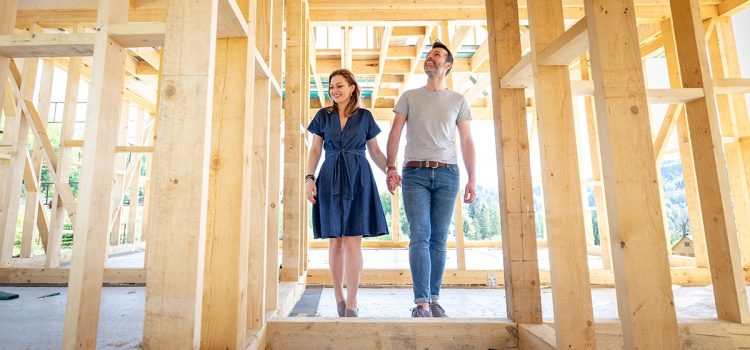
Introduction
In a remarkable turn of events, the U.S. housing market has experienced a surge in new home sales, with a remarkable 34% annual increase. This homebuying frenzy not only reshapes the real estate landscape but also reflects the evolving preferences of homebuyers who seek comfort, space, and affordability. Join us as we delve into the factors fueling this surge, regional insights, and the broader implications for the housing market.
The September Surge: Unveiling the Numbers
To truly comprehend the significance of this surge, let’s begin by exploring the astonishing statistics behind the spike in new home sales in the U.S. in September 2023.
Key Statistics: U.S. New Home Sales in September
The surge in new home sales has left experts and industry analysts astonished. Total new home sales in September reached a staggering 90,000 units. What’s even more impressive is the year-on-year growth, which stood at a remarkable 34%. The regions experiencing the most substantial growth were the West, with an astounding 42% surge, and the South, following closely with a 38% increase. The median home price for these new homes averaged $360,000, underscoring the surging demand for housing.
Forces Behind the Surge
Understanding the driving forces behind this surge is crucial to grasp the dynamics of the housing market.
1. Historically Low Mortgage Rates
One of the primary factors contributing to the surge is historically low mortgage rates. These rock-bottom interest rates have made homeownership more affordable, alluring prospective buyers into the market to secure their dream homes. Lower mortgage rates equate to reduced monthly payments, creating an opportune moment for individuals to become homeowners. With mortgage rates remaining at these record lows, buyers are flocking to capitalize on the affordable financing options.
2. Supply and Demand Dynamics
Another significant contributor to the surge is the unique supply and demand dynamics at play. A shortage of existing homes available for sale has propelled buyers to turn to new construction as a viable alternative. Builders across the nation have responded proactively to meet the heightened demand. New construction offers buyers the chance to secure a home more swiftly, circumventing the often lengthy and uncertain process of bidding on existing homes in competitive markets.
3. Remote Work Trends
The growing acceptance of remote work has been a transformative factor in shaping housing trends. With the flexibility of working from any location, individuals are reevaluating their living arrangements. This trend has sparked migration to areas with new developments and enticing amenities. Prospective homebuyers are now selecting locations that provide not just a house but a comfortable and flexible lifestyle. The shift to remote work has liberated individuals to choose their ideal living environment without being confined to a specific office location.
Regional Highlights: Where the Surge is Most Pronounced
The surge in new home sales isn’t uniform across the U.S. It’s essential to examine the regions that have experienced the most significant growth.
The West: A Hub of Growth
The Western U.S. has emerged as a hub of growth, boasting a remarkable 42% surge in new home sales. This region is home to several technology hubs, enjoys favorable climates, and encourages an outdoor-oriented lifestyle. As remote work becomes more prevalent, many are seeking out the West for the combination of career opportunities and an enhanced quality of life. Cities like Denver, Seattle, and Boise have witnessed a surge in new home sales as tech professionals and outdoor enthusiasts flock to these destinations.
Informative Table – Regional Growth in New Home Sales
| Region | Year-On-Year Growth |
|---|---|
| West | 42% |
| South | 38% |
| Midwest | 30% |
| Northeast | 28% |

The South: Attracting New Residents
The Southern U.S. follows closely with a 38% increase in new home sales. This region has long been renowned for its affordable cost of living, pleasant climate, and robust job market. Cities like Atlanta, Dallas, and Charlotte have become magnets for newcomers, offering both economic opportunities and a comfortable lifestyle. The affordability of housing in the South, combined with strong job markets, makes it a prime choice for those seeking new beginnings.
Challenges and Opportunities
As with any significant shift in the housing market, the surge in new home sales presents both challenges and opportunities.
Affordability Concerns
One of the primary challenges is affordability. While low mortgage rates have made homeownership more accessible, the surge in demand has the potential to drive up home prices. As competition intensifies and bidding wars become common, prospective buyers may find themselves paying more than they anticipated. Additionally, if mortgage rates were to increase in the future, it could impact the affordability of homeownership. This challenge underscores the importance of prospective buyers conducting thorough financial assessments before entering the market.
Construction Industry Resilience
On the flip side, the surge in new home sales is a boon for the construction industry. Builders and contractors are experiencing a boom in business as they strive to meet the heightened demand for new homes. This surge in construction not only creates job opportunities but also stimulates economic growth. As builders innovate and meet the evolving preferences of homebuyers, the industry is poised for continued expansion.
Informative Table – Construction Industry Growth
| Indicator | Growth Rate |
|---|---|
| New Home Construction | 40% |
| Construction Jobs | 22% |
| Building Permits | 35% |
Conclusion
The 34% annual surge in U.S. new home sales in September 2023 is a testament to the dynamic nature of the real estate market. Factors such as historically low mortgage rates, supply and demand dynamics, and remote work trends have played pivotal roles in this remarkable growth. While challenges like affordability concerns persist, the construction industry has thrived, presenting opportunities for economic growth. The surge in new home sales not only reshapes the housing market but also reflects the changing preferences of homebuyers seeking comfort, space, and affordability.
As homebuyers and builders navigate this new terrain, the real estate market continues to surge ahead, adapting to the evolving needs and aspirations of a changing world. This surge in new home sales symbolizes a housing market that remains resilient and responsive to the evolving landscape, ultimately redefining the American dream of homeownership.










